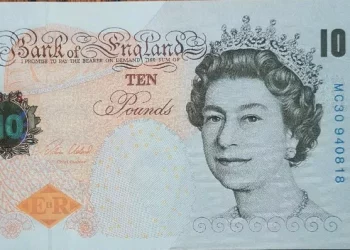When traveling to Europe, one of the essential aspects to consider is how to handle your currency exchange. Europe is a diverse continent with different currencies used in each country. Understanding where and how to exchange money efficiently can save you time, money, and hassle during your trip. In this guide, we will explore the various options available for exchanging money in Europe and provide useful tips to ensure you get the best rates and convenience.
Plan Ahead: Currency Research and Preparation
Before embarking on your European adventure, it is crucial to research the currencies used in the countries you will be visiting. Familiarize yourself with the current exchange rates and be aware of any local regulations or fees associated with currency exchange. Knowing the approximate amount of money you will need can help you plan and budget accordingly.
Airport Exchange Services
Upon arrival in Europe, one of the most readily available options for currency exchange is at the airport. Most airports have currency exchange desks or kiosks where you can convert your money. While this option offers convenience, it is important to note that airport exchange services often have higher fees and less favorable exchange rates compared to other alternatives. Therefore, it is advisable to exchange only a small amount of money at the airport to cover immediate expenses and find better rates elsewhere.
Local Banks
Local banks in European countries are a reliable and secure option for currency exchange. Banks typically offer competitive exchange rates and have a range of services tailored to travelers. Many banks have dedicated foreign exchange desks, allowing you to exchange your currency efficiently. However, keep in mind that banks may charge fees for currency exchange, so it is advisable to inquire about any potential charges before proceeding with the transaction.
ATMs and Cash Withdrawals
Using ATMs to withdraw cash in Europe is a popular and convenient option for many travelers. ATMs are widely available throughout European cities and towns, and they usually offer competitive exchange rates. When using ATMs, it is advisable to withdraw larger amounts of money to minimize transaction fees, as many banks charge a flat fee per withdrawal. However, it is crucial to inform your home bank of your travel plans to ensure your card will work abroad and to inquire about any international withdrawal fees.
Dedicated Currency Exchange Offices
In addition to banks, dedicated currency exchange offices are prevalent in major European cities and tourist areas. These offices specialize in foreign currency exchange and often offer competitive rates. It is advisable to compare rates between different exchange offices to find the best deal. Be cautious of exchange offices that advertise “no fees” but offer unfavorable rates, as they may incorporate fees within the exchange rate itself.
Online Currency Exchange Services
With the rise of online banking and fintech solutions, many reputable online currency exchange services have emerged. These platforms allow you to exchange currency online and have it delivered to your home or pick it up at designated locations. Online currency exchange services often offer competitive rates and lower fees compared to traditional options. However, be sure to choose a reputable service with secure payment methods and check for any additional charges such as delivery fees or minimum transaction amounts.
Credit and Debit Card Usage
Credit and debit cards are widely accepted in Europe, especially in urban areas and tourist destinations. Using your card for purchases and payments can be convenient and offers competitive exchange rates. However, be aware that some establishments may charge additional fees for card transactions or apply dynamic currency conversion, which may result in unfavorable rates. It is advisable to inform your card issuer about your travel plans and inquire about any international transaction fees or foreign currency exchange charges.
Peer-to-Peer Currency Exchange
Peer-to-peer currency exchange platforms have gained popularity in recent years. These platforms connect individuals who want to exchange currency directly, cutting out the middleman and potentially offering better rates. However, this option requires careful consideration and caution, as it involves dealing with individuals online. It is crucial to use reputable platforms and exercise due diligence when selecting a peer-to-peer exchange.
Consider Local Currency Usage
While the euro is widely accepted in many European countries, some countries have retained their national currencies. In such cases, it is advisable to have local currency on hand, especially in smaller towns or rural areas where card acceptance may be limited. Research the local currency requirements of each country you plan to visit and ensure you have the necessary cash for everyday expenses.
Safety and Security
Regardless of where you choose to exchange your money, it is important to prioritize safety and security. Be cautious when carrying large amounts of cash and consider using a money belt or hidden pouch to keep your money secure. Avoid exchanging money on the street or with individuals who approach you, as this can be a common tactic used by scammers.
In conclusion, Europe offers a range of options for currency exchange, each with its advantages and considerations. Planning ahead, researching exchange rates, and exploring multiple options can help you make informed decisions and optimize your currency exchange experience. Whether you choose to exchange money at local banks, use ATMs, online services, or a combination of methods, prioritizing convenience, competitive rates, and security will ensure a smooth financial journey throughout your European travels.
Related Topics:



























